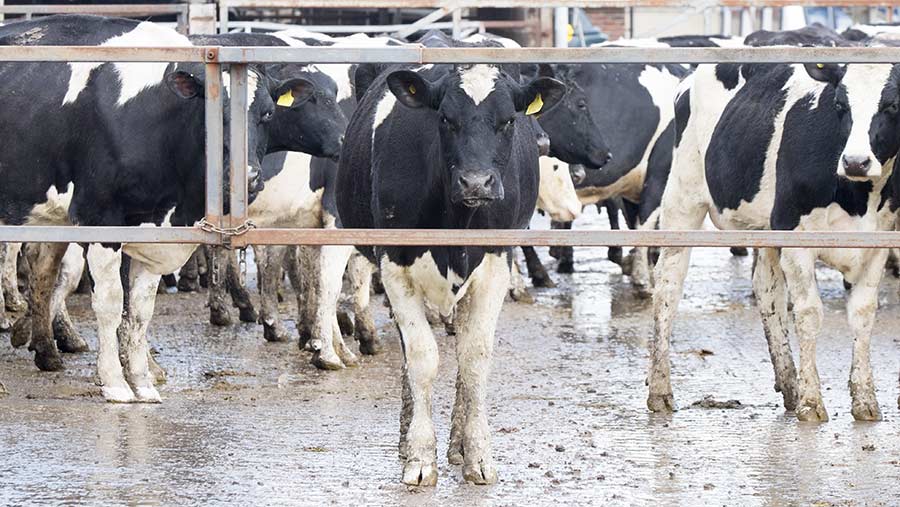GB application for ‘negligible’ BSE status hangs in balance
 © Tim Scrivener
© Tim Scrivener Urgent talks are taking place between the British Meat Processors Association (BMPA) and Defra this week after the World Organisation for Animal Health (WOAH) blocked attempts by Britain to apply for BSE “negligible” risk status.
In what is seen as a financially damaging decision for the red meat industry, WOAH says a one-year delay is needed for Britain’s application to enable it “to modify and adapt” current BSE risk management measures and surveillance systems “in accordance with the new BSE standards”.
See also: Feed bin survey in bid to achieve ‘negligible’ BSE risk status
The BMPA says this amounts to a “transition period” during which existing BSE standards will still prevail.
It means that the financial value associated with the “fifth quarter” of beef carcasses cannot be unlocked – for example, the processing of mesenteric fat into tallow, which could be worth £10m to Britain’s red meat industry.
BMPA technical operations director David Lindars said the situation is one that impacts on potential overseas trade and must be swiftly resolved.
“We are going to be speaking to Defra this week to impress upon them the importance of this,” he said.
“They should at least talk to WOAH and hopefully convince them to change their mind.”
New case
The UK was in a position to submit an application because of a change in the rules, which now require only eight years without a new case of BSE instead of the previous 11.
A comprehensive report backing Britain’s bid for negligible risk status is understood to have been prepared and is ready to be submitted with the application.
If the application is not lodged before the end of July, Britain won’t be able to gain that status until 2025.
But if it is submitted and is granted, it would put Britain on the same footing as countries around the world that are classified as having negligible risk of BSE.
“It is important that we extract every penny possible out of the fifth quarter,” said Mr Lindars.
Britain was poised to submit an application to WOAH in 2021, but the discovery of a BSE case on a dairy farm in England prevented that.
With that case potentially linked to residual contaminated feed material in a silo in use prior to the 1996 meat and bone meal ban, the Animal and Plant Health Agency (Apha) has since gathered evidence on the prevalence of “old” feed bins on cattle farms.
